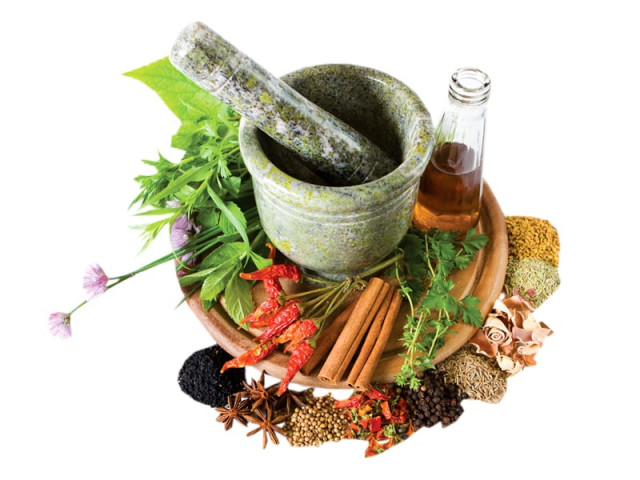Lecture: ‘It’s time to know your herbs better’
Nutritionist talks about use, misuse of herbs.

“Most people in Pakistan are not satisfied with the health care system in the country. This makes them look for safe alternatives” Nutritionist Sultan Mehmood said on Monday.
He was giving a lecture on ‘Understanding Herbs and Local Totkas’ at Faiz Ghar.
The audience, mostly elderly people, were informed about the uses and misuses of herbs for medicinal, spiritual and culinary purposes.
Mehmood said that there were enough herbs worldwide to provide for the world population of seven billion, but forests containing herbs, especially those with medicinal uses, were owned by big pharmaceutical companies limiting their access.
“Access to these herbs has become limited to a lot fewer people,” he said.
He gave the example of the Amazon forests in South America, owned by the top eight pharmaceutical companies in the United States.
He said the biochemistry industry worldwide was synthesising active agents of the herbs and selling them as medicines.
Mehmood said that the ten most researched herbs in the world were all available in Pakistan. However, due to their high cost, they were not in extensive use. He said ginseng and gingko bilaboa, known to have anti ageing qualities, were two of them.
Qarshi Manager Hakim Saleemi provided the local names of the herbs as Mehmood mentioned them in the lecture.
Mehmood talked at length about herbs widely available in Pakistan. He advised the audience on use of these herbs in small quantities for “better functioning of organs” and as alternative medicines for treating minor ailments such as headache, cold, stomach ache and liver dysfunction.
Quoting from a Japanese research, Mehmood said, some recreational drugs such as cannabis, used for its attention enhancing properties, should be used in controlled quantities and under expert guidance.
He also talked about the side effects of the overuse of some popular herbs such as dried thyme (useful for digestion) and lavender and chamomile (used for its sleep-inducing properties).
He also talked about some herbs considered sacred in some cultures and religions.
“Native Americans consider white sage and cedar to enhance spiritual qualities,” he said, adding, “Hindus worship a basil plant because of its anti-inflammatory qualities and nutritional value.”
Published in The Express Tribune, March 6th, 2012.



















COMMENTS
Comments are moderated and generally will be posted if they are on-topic and not abusive.
For more information, please see our Comments FAQ